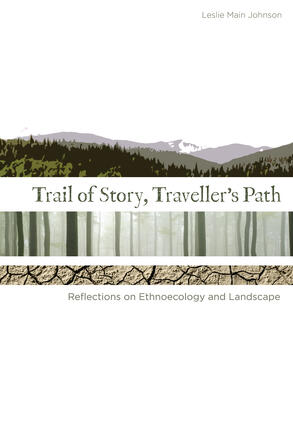
Trail of Story, Traveller’s Path
Reflections on Ethnoecology and Landscape
Description
Trail of Story examines the meaning of landscape, drawn from Leslie Main Johnson’s rich experience with diverse environments and peoples, including the Gitksan and Witsuwit’en of northwestern British Columbia, the Kaska Dene of the southern Yukon, and the Gwich’in of the Mackenzie Delta.With passion and conviction, Johnson maintains that our response to our environment shapes our culture, determines our lifestyle, defines our identity, and sets the tone for our relationships and economies. With photos, she documents the landscape and contrasts the ecological relationships with land of First Nations peoples to those of non-indigenous scientists. The result is an absorbing study of local knowledge of place and a broad exploration of the meaning of landscape.
Reviews
"Although the text examines peoples of northwestern North America, Johnson situates her study in the larger examination of Indigenous epistemologies. She maintains that despite diversity in the biological landscapes, many Indigenous cultures share commonalities in their relations to the land through ‘the integration of the sacred or spiritually powerful, with other aspects of the lived world.’”
- Labour/Le Travail
"Captivating, meticulous, invaluable, and awesome best describe this book. … Destined to become a classic in ethnoecology, cultural ecology, and spiritual ecology, this book should be relevant to anyone interested in this northwestern region or the subjects in general, including anthropologists, biologists, geographers, and others."
- L. E. Sponsel, University of Hawaii